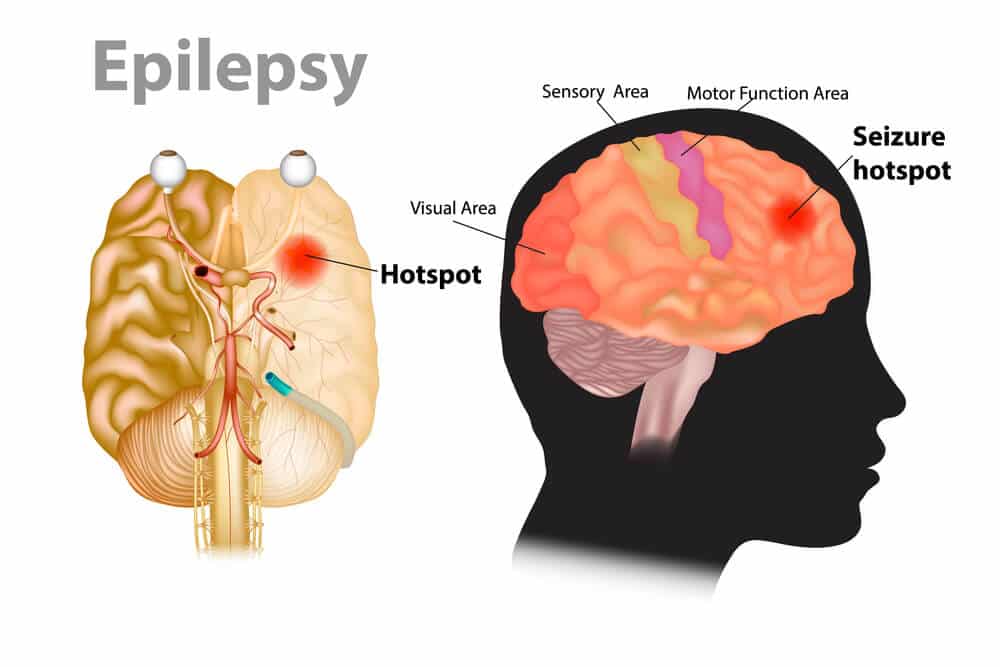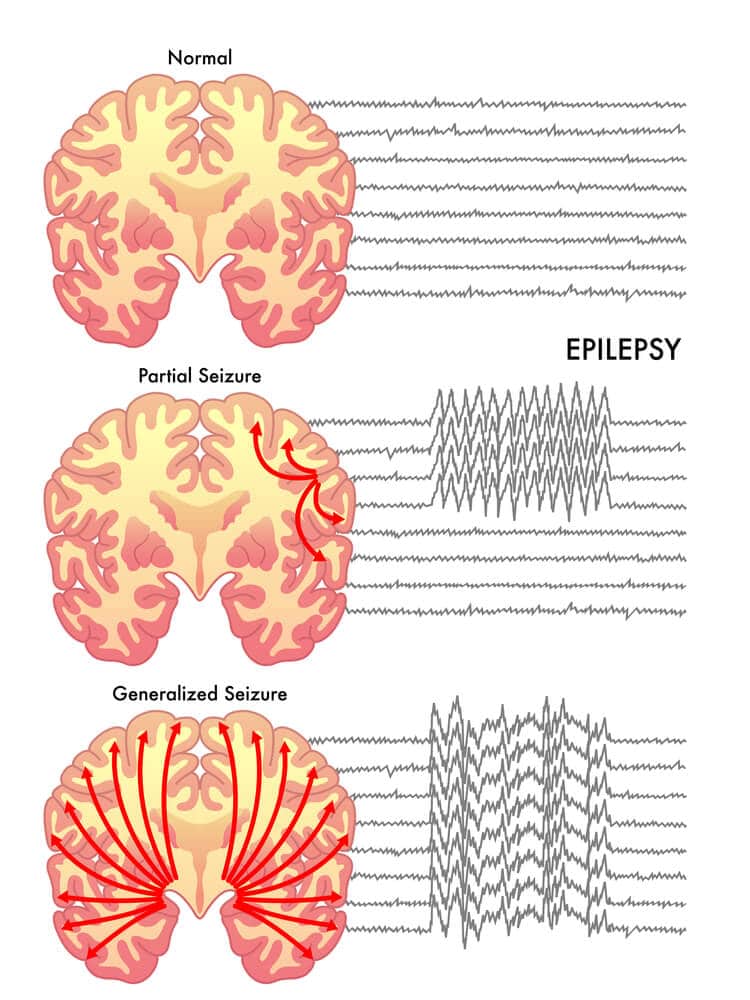Epilepsy affects one to two percent of Pennsylvanians, according to the Department of Health of Pennsylvania. It is considered the third most common brain disorder after stroke and Alzheimer’s.
To gain access to an MMJ card, visit our Pennsylvania page.
The Epilepsy Foundation in eastern Pennsylvania reported that there are 110,000 individuals living with epilepsy in the state.
One out of three people with epilepsy lives with uncomfortable seizures because there is no available treatment that works for them.
Six out of ten people who suffer from this medical condition in Pennsylvania have unknown causes.
In addition, the Department of Health records that epilepsy affects one to two percent of Pennsylvanians.
More people suffer from epilepsy than from Parkinson’s disease, cerebral palsy, multiple sclerosis, and muscular dystrophy combined.
In terms of the cause of epilepsy, 70% of the time, its cause is not known, although head injury, infections, or heredity are known to cause it.

A person is said to have epilepsy when he or she has had two or more seizures. A seizure, a short change in normal brain activity, is thought to be the main sign of epilepsy.
It is the result of sudden, brief changes in the electrical balance of the brain, and it happens when there are too many electrical charges in the brain.
Seizures typically last a few seconds to a few minutes and affect awareness, physical movements, or speech.
When an individual is diagnosed with epilepsy and experiences several seizures, his or her awareness, physical movements, or speech, are affected.
Most people who have epilepsy have the following symptoms:
An overview of epilepsy symptoms may look like heart attacks, strokes, or lack of balance. The first signs of epilepsy can develop during the pre-school and elementary school years. It is often considered a lifelong condition and can be managed with the use of medication, special diets, or surgery.
It can sometimes be difficult to tell if a person is having a seizure since he or she can just seem to have a confused look or maybe staring at something that is not there.
Other seizures would cause a person to fall, shake, and become unaware of what’s going on around them.
1. Generalized seizures — affect both sides of the brain, produced by widespread abnormal
General epilepsy classifications are:
2. Focal seizures — affect just one area of the brain, also called partial or localized seizures, produced by electrical impulses that generate from a relatively small part of the brain referred to as the focus
Partial epilepsy classifications are:
Causes of Epilepsy
About 30% of the 180,000 new cases of epilepsy every year occur in children. Most patients diagnosed with epilepsy are children and elderly adults. The minority of the cases have determined clear causes, but the typical known cause of a seizure is some injury to the brain. Up to 70% of all cases of epilepsy have no discovered causes.
Main causes of epilepsy include:
Living with epilepsy can be challenging. The challenges will be different for children, adolescents, and seniors than for adults.
Generally, patients suffering from epilepsy often experience changes in their quality of life which typically include less mobility.
Several aspects in life are also affected such as:
The impact on the lifestyle of epilepsy would depend on these factors:
The process of eliminating epilepsy can take a long time. Most patients take steps to adapt their lifestyle to accommodate their epileptic condition. They can set goals working toward a good quality of life even with epilepsy.
There is no known cure for epilepsy. Medication and therapy are being used to manage the seizures and to minimize the causes.
Lifestyle modifications can also help like:
Other common treatments for epilepsy are:
The state of Pennsylvania lists epilepsy as one of the debilitating conditions that qualify for medical marijuana. If you’re seeking to get one for your condition, you need a medical marijuana card and a doctor’s recommendation.
Our online platform can help you get started through our HIPAA-compliant application. Contact us online today!
